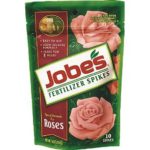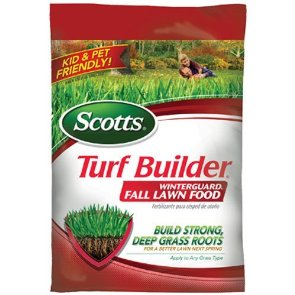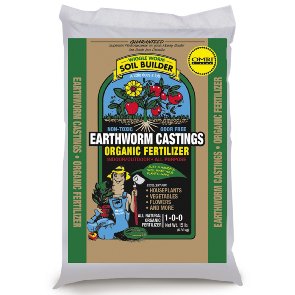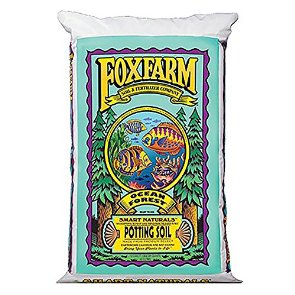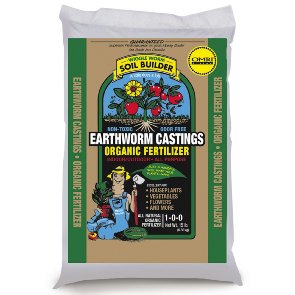There are so many rose fertilizers to choose from and each gardener swears by the one that they’ve “been using for years!” to yield healthy, beautiful plants. We are here to help you find the best fertilizer for roses.
So how do you narrow down the choices? What are the basic types to choose from and what can you purchase ready-to-use if you don’t have the time, space, or resources to whip up a batch of fresh-from-the-kitchen-pantry fertilizer?
We have all the answers for you below.
In our guide, we’ll highlight the best fertilizer for roses in addition to providing you with a bit of useful information that will help you understand the differences between them.
Get more blooms and healthier foliage by incorporating any of these great fertilizers into your current gardening routine. Of course, setting up and following a plant care routine is how you can make it all come together.
We are a professional reader-supported review site. You get our best product recommendations and we can receive small commissions from our affiliates at no cost to you. Win-Win!!
Current Top Selling Fertilizers for Roses
*Price from: 2024-10-03 at 00:31 EST
*Price from: 2024-10-03 at 06:28 EST
Types of Fertilizer
Since fertilizer comes in a variety of shapes and forms, we thought we’d go over the most popular ones with you.
- Spikes. Spikes are designed to be punctured into the ground at the base of the plant. They will slowly release their nutrients over time with watering, spreading them directly below the soil and into the roots.
- Granular. These are solid granules of fertilizer that vary in size based on the manufacturer and the plants that they are designed to nourish. You work these granular pellets into the soil manually in order for them to benefit the plant. Over time, they will slowly break down and release their nutrients to the plant.
- Liquid. The liquid products often come in concentrated form. These are diluted with water and then applied around the base of the plant. The water soaks down through the soil and be absorbed by the roots.
One example of granular fertilizer is Epsom salt (magnesium sulfate). Yes, Epson Salt is not just for your bath. Perhaps this use is (over) promoted by the Epson Salt Council, but there seems to be enough evidence that this salt does contain many natural fertilizers that roses love. You can try their specific tips. If you try this as part of your annual feeding regimen, let us know your results.
The Small Details Make a Huge Difference
Remember that there are so many small details that can make a huge difference in a fertilizer’s overall effectiveness.
The time of day, the outdoor temperature, as well as the season, will affect how the rose uses the fertilizer, and on that note, keep in mind that indoor roses have many different needs than outdoor roses.
Your soil itself will also determine whether or not the fertilizer can do its job. Unbalanced pH levels can prevent the nutrients from doing their job, and even the best fertilizer for roses wouldn’t work if your soil is off tilt.
If you’ve tried numerous products without success, or you want to be proactive, we suggest you have your soil tested. Remember that it is easy and inexpensive to test your soil with a soil pH tester.
Going Natural – Use Manure
Another great alternative that rose experts turn to is animal manure.
Animals that have a high amount of alfalfa in their diet produce excellent rose “food” fertilizer – usually cows and horses. Many people are put off by the thought of using animal manure as a fertilizer. Is manure safe to use as a fertilizer? Will manure smell?
Well, it is now easy to find processed animal manure. This processed waste product has no smell, its nutrients are balanced, and it provides a consistent and inexpensive fertilizer. This makes sense because the animal processing plants have lots of source “material” available!
Chicken manure is another great choice since it has a high nitrogen content, which encourages more foliage production and taller plants.
Those of you who don’t have a farm nearby can purchase dehydrated manures sold in a box, such as the Hoffman Super Manure that we’ve included in our table.
The Numbers
You’ll often see ratio numbers listed on the fertilizer boxes, and those number are referring to the percentage (by weight) of the three major nutrients that plants need: Nitrogen-Phosphorous-Potassium.
The numbers are always listed in the same order on any brand of fertilizer – going from N-P-K or percentage of Nitrogen, percentage of Phosphorous, percentage of Potassium. All three of these primary nutrients benefit growing plants. It is commonly stated that they have these primary benefits:
- (N) Nitrogen – For leaf growth and is often recommended for green plants and vegetables. Nitrogen is a very common element making up 78% of the air we breathe. As a fertilizer, the Nitrogen component is more directly available to plants.
- (P) Phosphorus – For root growth, fruit growth, and flowering. Phosphorus is not just good for plants. It is considered a part of a balanced diet and is the second most plentiful mineral in our bodies.
- (K) Potassium – A more general nutrient helping all aspects of plant growth. It is interesting to note that fire ash is high in Potassium. So when you clean out your fireplace or outdoor grill, take the ash and spread it in your garden. Your plants will love you for it and it’s free!
Top 3 Best Fertilizer for Roses Reviews
1. Jobe's Rose Fertilizer Spikes
Jobe’s is a popular brand in the fertilizer spike category and if you’re the type of gardener who loves to have beautiful, thriving rose bushes without a huge time investment, this is the right product for you.
- Package contains 10 rose and flower fertilizer spikes and is produced to avoid wasteful runoff, mess, hazards and smells
- Plant fertilizer is formulated with a 9-12-9 NPK to provide roses and flowering plants the nutrients they need to create abundant blooms vibrant leaves
- Fertilizer spikes feed flowering plants for 8 weeks and should be applied in early spring when new growth begins
- Jobe's fertilizer spikes are pre-measured to provide the right amount of nutrients for flowering shrubs without risk of over fertilizing
- Jobe's fertilizer spikes come in a variety of formulas and pack sizes to help provide lush foliage and vibrant color to your lawn and garden
*Price from: 2024-10-03 at 00:31 EST
Each spike contains a mixture of 9% nitrogen (for healthy, bushy foliage), 12% phosphorous (to promote a healthy root system), and 9% potassium (also known as potash to help with nutrient absorption and produce larger blooms).
The number of spikes you place around each plant depends on the overall plant diameter (see label for details).
Add them to soil in the early spring and they’ll feed the plant for up to 8 weeks!
This is definitely one of the most convenient options on our list. ✔️ Let's get it NOW!
2. Down To Earth 5-Pound Alfalfa Meal
Alfalfa meal is one of the go-to fertilizers for those who are passionate about growing beautiful, healthy roses, so if spikes aren’t the right answer, this is a great alternative.
- Down To Earth Alfalfa Meal is a four pound box of all natural fertilizer with 2-0-1 formula and is listed by the Organic Materials Review Institute (OMRI) for use in organic production
- Alfalfa Meal is a rich source of trace elements and natural growth stimulants and an excellent soil conditioner that accelerates growth and promotes larger, more plentiful blooms
- Sun-cured and freshly milled to preserve the highest plant nutrient value and is recommended for all flowering shrubs, especially roses, as well as all other vegetables, herbs and flowers
- Northwest grown and it is also useful as a compost bio-activator due to its high organic matter content and ideal Carbon-to-Nitrogen ratio
- Guaranteed to be GMO-free and provides a rich natural source of Potash, trace minerals, amino acids and natural plant hormones
*Price from: 2024-10-03 at 00:31 EST
This is a classic example of how one plant can help another. Alfalfa is rich in calcium, iron, nitrogen, magnesium, phosphorus, triacontanol, zinc, and numerous vitamins, which are all extremely beneficial to both plants and blooms.
If compost and other fertilizers have never worked for you, we suggest you give this a try! Chances are the other products were lacking some nutrients or they were available in the wrong proportions, but this does the trick to get many rose bushes to look their best.
One other thing we love about this brand is that the box itself is compostable! Once it’s empty, just throw it in the compost bin and let nature work its magic. ✔️ I'm sold, show me more.
3. Pennington Epsom Salt
Since Epsom salt is magnesium sulfate – magnesium aiding in nutrient absorption and strengthening cell walls and sulfur helps produce vitamins, amino acids, and enzymes – some soils are already rich enough in both that additional amounts could potentially burn a plant.
- Plant nutrient
- For vigorous lawns, flowers, plants, vegetables and trees
- Good source of magnesium and sulfur for plant growth
- Corrects yellowing leaves when caused by magnesium and/or sulfur deficiencies
*Price from: 2024-10-03 at 00:31 EST
This product can be very useful if you have soil that is magnesium deficient, and the salt can be worked into the soil or diluted in water and applied to the leaves.
Epson Salt has been a standard of plant fertilizing for a long time. It is especially popular for rose gardens. Hard to argue with success, as they say. It is known that the magnesium and sulfur in the salt are beneficial to plants. ✔️ Yes! I want it!

